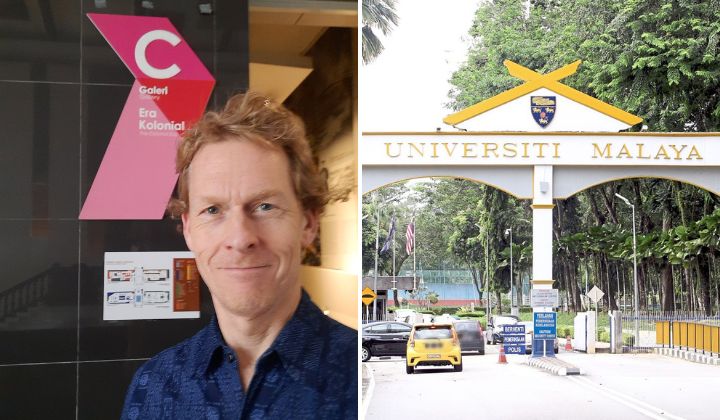The End Of An Era: Goodyear’s Closure In Malaysia And The Future Of Manufacturing
As Goodyear prepares to shut down its iconic Shah Alam plant, the nation reflects on the changing landscape of the manufacturing industry and the challenges ahead.

Subscribe to our FREE Newsletter, or Telegram and WhatsApp channels for the latest stories and updates.
In a sombre announcement marking the end of an era, Goodyear, one of Malaysia’s longest-standing tyre manufacturers, has revealed its plans to close its Shah Alam plant starting 30 June.
Complete cessation of operations is expected by the end of the year.
As explained by Nathaniel Madarang, President of Goodyear Asia Pacific, the decision is part of the company’s transformative “Goodyear Forward” program, aimed at optimizing operations and contributing to the annual cost reduction target of US$1 billion (RM4.7 billion).
The plant, a fixture in Shah Alam since 1972, will close, impacting 550 employees who have been the backbone of the company’s success.
Goodyear’s history in Malaysia dates back to 1929 when it first set foot in Malaya, and the company proudly served as the tyre supplier for the nation’s first car, the Proton Saga, in 1985.
While Goodyear Malaysia assures its customers that it will continue to serve the local market with tyres imported from its plants in Thailand, Indonesia, China, and Taiwan, the closure of the Shah Alam plant raises concerns about the future of manufacturing in the country.
The plant, one of the earliest in Shah Alam, has gradually reduced its operations over the past few years, with Goodyear increasingly relying on imports from its overseas facilities.
The Goodyear closure is not an isolated incident but part of a larger trend of major factories shutting down in Malaysia.
- Sony: In 2020, Sony closed its audio device factory in Penang, which had been operating for over 30 years. The company shifted its production to Thailand and China.
- Panasonic: Two product manufacturing departments were closed in 2023 due to a rationalization exercise and business restructuring.
- Seagate: In 2017, Seagate Technology, a leading hard disk drive manufacturer, closed its plant in Penang, resulting in the layoff of over 3,000 employees. The company moved its production to Thailand (The Edge Markets, 2017).
- Western Digital: In 2018, Western Digital, another major hard disk drive manufacturer, closed its plant in Petaling Jaya, affecting around 400 workers. The company consolidated its operations in Thailand (New Straits Times, 2018).
Serious lah kilang sony nak tutup aku kesian kat 3400 yg kerja kat situ.hilang perkerjaan https://t.co/BjZMNLHij1
— Bang Enzo (@Bang_kai_) December 4, 2020
Turning the Tide: Reskilling and Adapting to the New Manufacturing Landscape
Rising costs, increased competition from neighbouring countries, and shifts in global supply chains have contributed to this phenomenon.
As more companies reevaluate their operations and seek cost-effective alternatives, the manufacturing landscape in Malaysia faces significant challenges.
However, amidst the uncertainty, there is a glimmer of hope.
The Malaysian government has proactively implemented policies and incentives to attract and retain foreign investment in the manufacturing sector.
Initiatives such as the Industry4WRD policy aim to drive the adoption of advanced technologies and promote innovation, positioning Malaysia as a competitive destination for high-value manufacturing (Ministry of International Trade and Industry, 2021).
Trivia Thursday: Malaysia, A Land of Opportunities – Business Ready Environment
— Malaysian Investment Development Authority (MIDA) (@OfficialMIDA) January 18, 2024
Embracing the Future: Malaysia's Industry4WRD paves the way for a smarter, stronger manufacturing sector driven by people, processes, and technology. pic.twitter.com/MnnyU6pyjY
Forging Ahead: Embracing Change and Seizing Opportunities in the Wake of Goodyear’s Closure
The closure of the Goodyear plant in Shah Alam is a poignant reminder of the ever-changing nature of the manufacturing industry.
While it marks the end of an era, it also catalyzes reflection, adaptation, and growth.
It presents an opportunity for the affected employees to reskill and upskill, aligning themselves with the industry’s evolving demands.
In collaboration with industry partners, the government has offered training programs and support to help workers transition to new roles in the manufacturing sector or explore opportunities in other growing industries.
As Malaysia navigates this challenging period, it is crucial for all stakeholders – the government, industry players, and the workforce – to adapt and innovate.
By embracing new technologies, fostering a skilled labour force, and creating a conducive business environment, Malaysia can weather the storm and emerge as a resilient and competitive manufacturing hub in the region.
As the nation bids farewell to this iconic symbol of its industrial heritage, it must look forward with determination and optimism, ready to embrace the opportunities ahead.
Share your thoughts on TRP’s Facebook, Twitter, and Instagram.





